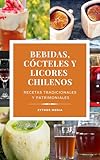
After four years of study, researchers from the University of La Frontera have concluded a project aimed at revaluing and promoting the agri-food heritage of the lleuque fruit (Prumnopitys andina) at the national level, also known as the mountain grape.
This is an endemic species that only grows in Chile and Argentina. Additionally, La Araucanía region concentrates 50% of the plant’s global presence.
After conducting a study that considered forest structure, the number of plants per hectare, the protection of their development, and the dissemination of the fruit’s potential, one of the main objectives of this project was to benefit family farming through science and technology in the localities of Llanquén and Troyo, Lonquimay commune, in La Araucanía.
For years, these communities have processed the lleuque fruit in an artisanal manner to make jams, preserves, and flours.
Dr. Cristina Diez, director of the Center of Excellence in Biotechnological Research Applied to the Environment (CIBAMA) at UFRO and leader of the research project, comments:
For the residents of Lonquimay, the collection of this fruit is something ancestral because they have lived with it for many years. Through our scientific and technological contribution, we wanted to give it commercial value that would have an impact on the community, through the protection of the species and fruit processing.
The Vice-Rector for Research and Postgraduate Studies at UFRO, Dr. Rodrigo Navia, details:
As the main state university in the regions, with this project, we seek to continue promoting the contribution that we, from sciences and research, can provide to our society. In this case, adding value to a food tradition in southern Chile, such as lleuque production.
Among the main achievements of this project are technological training to improve their good manufacturing practices and add value to their products.
This was added to the installation and equipment of a processing room for making products from the lleuque fruit, a manual on propagating this native Chilean plant, a manual on lleuque processing, a recipe book, and a map with the lleuque route, among others.
Regarding the project, in the interdisciplinary research, which received contributions from the Foundation for Agricultural Innovation (FIA), UFRO researchers Dr. Cristina Diez, Dr. Zoia Neira, Dr. Erick Scheuermann, and Professor Soraya Calzadilla participated, along with support from other professionals and students at the University.
It is worth noting that the participation of the Municipality of Lonquimay, the project’s farmer partners, and the Institute of Agricultural Development (INPAP) were key components for the success of this project.
Finally, the fruit processing room was installed in the Llanquén Neighborhood Association, where the Lonquimay community expressed gratitude for strengthening the identity of the territory and supporting local economic development.







